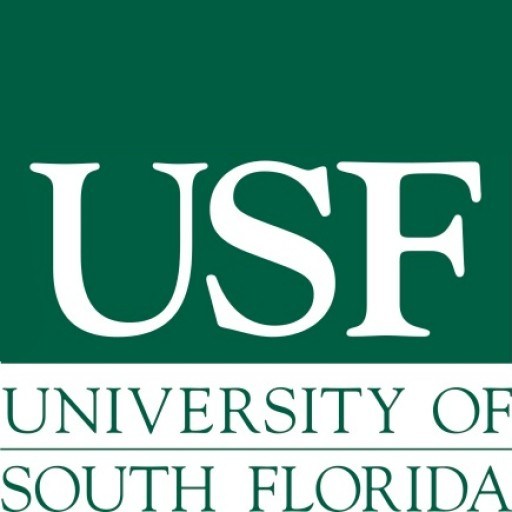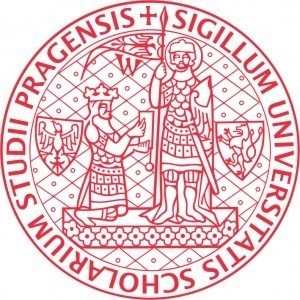Photos of university / #dukeuniversity
The Duke University Political Science program offers a comprehensive and rigorous curriculum designed to provide students with a deep understanding of political systems, governmental processes, international relations, and public policy. Rooted in a tradition of academic excellence, the program equips undergraduates with critical thinking, analytical skills, and a broad perspective on political phenomena at local, national, and global levels. Students have the opportunity to explore diverse areas such as comparative politics, American politics, political theory, international relations, and public policy analysis, often tailoring their studies to their particular interests through specialized electives and independent research projects.
The program emphasizes experiential learning, encouraging students to engage in internships, fieldwork, and participation in model United Nations and political debates. Faculty members are distinguished scholars and practitioners dedicated to mentoring students and fostering an environment of intellectual challenge and inquiry. Through a mix of lectures, seminars, and collaborative projects, students develop a nuanced understanding of political ideologies, governance structures, policy-making processes, and the ethical considerations inherent in political decision-making.
In addition to classroom instruction, the program offers multiple opportunities for undergraduate research, including directed studies and senior theses. Students are encouraged to participate in Duke’s vibrant academic community, including interdisciplinary programs, study abroad, and extracurricular activities related to public service and advocacy. The Duke Political Science program prepares graduates for successful careers in law, government, international organizations, journalism, non-profit sectors, or advanced studies in political science and related fields. Emphasizing both theoretical foundations and practical skills, the program aims to cultivate informed, engaged citizens who can contribute thoughtfully and effectively to the democratic process and global affairs.
Program Options
- Thesis option: 24 graded course credits, 2 courses (6 credits ) ungraded research, and master's thesis
- Non-thesis option: 30 graded course credits, and 2 original research papers
Course Requirements
- A minimum of eight graded one-semester courses of 3 units each. At least five of the eight courses must be offered by the Department of Political Science, and only two of the courses can be undergraduate courses.
- Three of the eight courses (four for the JDMA) must cluster in one of the political science major fields
- Two of the eight courses may cluster in a second major field or a theme field
- Foreign language competency or one course in either statistics or formal theory. (NOTE: this is recommended but not required for students in the joint JD/MA degree program.)
- Three full terms of tuition must be paid (e.g. Fall, Spring and Summer I/II, or Fall, Spring, Fall). The enrollment cap is 12 units of graduate credit per semester.
Thesis Option
In the thesis option, 24 graded course credits are required in addition to six ungraded research credits. The ungraded research hours should be spent preparing the Master of Arts proposal and the thesis itself. The M.A. thesis should demonstrate your ability to collect, interpret and analyze pertinent material on a research problem. Ideally, the M.A. thesis will be a journal-style paper of approximately 30-50 pages. You may choose to expand upon a seminar paper that is completed during the first three semesters of coursework to fulfill the thesis requirement. You are required to pass an oral examination of your thesis in order to earn your degree.
Your thesis must be formatted according to guidelines set by the Graduate School. The timeline for submission and defense is as follows:
- On or before April 15 for a May degree.
- Ten (10) days before the final day of the second summer term for a September degree.
- Ten (10) days before the final day of the fall semester for a December degree.
- At least one week before the scheduled date of the final examination.
A three-member faculty committee, including at least two (2) members of the Political Science Department, must conduct the oral examination on the Master’s Thesis. It is the responsibility of the student to obtain in a timely manner the explicit consent of each faculty member to serve on their Master’s Committee.
Non-thesis Option
In the non-thesis option, you are required to complete 30 graded course credits. You must submit two research papers originally written in political science seminars. Your committee will then hold an oral exam in which you defend the papers. You must pass the oral examination in order to earn your degree.
- Applicants must offer verbal, quantitative and writing aptitude scores on the GRE.
- Ordinarily, applicants will have earned the BA or BS degree with at least 12 undergraduate semester hours in political science.
- Three letters of recommendation and an undergraduate transcript are required.
- English language proficiency test scores (if English is not your first language)
- A writing sample of 10-20 pages is requested.
- Application fee is $80.
- NOTE: Applications for spring semester are only considered in exceptional cases.
The Political Science undergraduate program at Duke University offers a range of financial aid and scholarship opportunities to support qualified students throughout their studies. Duke University is committed to providing access to education regardless of financial background, and as such, many students receive aid through a combination of need-based grants, scholarships, and work-study programs. Financial assistance is available to both domestic and international students, ensuring a diverse and inclusive academic community.
The university’s financial aid office guides students through the application process, offering detailed information on eligibility and application requirements for various aid programs. Students are encouraged to submit the Free Application for Federal Student Aid (FAFSA) and the CSS Profile to determine eligibility for need-based aid. Duke University pledges to meet 100% of demonstrated financial need for admitted students who qualify for aid, leveraging a robust financial aid fund. This funding is awarded based on a comprehensive assessment of family income, assets, and other financial circumstances.
In addition to need-based aid, the university offers merit-based scholarships that recognize academic achievement, leadership, and extracurricular involvement. These scholarships are highly competitive and do not require separate application beyond the admission process. For international students, Duke has specific scholarships and aid options to help offset tuition costs, although international students are often encouraged to explore external funding sources as well.
Students can also access work-study opportunities that allow them to earn money during their studies while gaining valuable professional experience. Duke’s strong alumni network and partnerships with various organizations can facilitate internships and employment opportunities that may assist students financially.
Tuition and fees are updated annually, and the university’s financial aid page provides detailed information on costs, expected family contribution, and available assistance programs. The university’s commitment to affordability is reflected in its efforts to keep student debt levels manageable and to provide comprehensive support services to help students plan and finance their education.
Overall, the financing of the Political Science program at Duke University is designed to ensure that students from diverse financial backgrounds can pursue their academic goals with minimal financial barriers, supported by a combination of institutional aid, scholarships, work opportunities, and external funding options.
The Political Science program at Duke University offers students a comprehensive and rigorous education in the field of political science, designed to develop analytical skills, critical thinking, and a deep understanding of political systems, behavior, and theory. The program encompasses a broad range of topics including American politics, comparative politics, international relations, political theory, and public policy. Students have the opportunity to explore diverse political institutions, electoral systems, government structures, and policy processes across different regions and countries. Duke's faculty members are distinguished scholars and accomplished researchers dedicated to providing high-quality instruction and mentorship. The curriculum emphasizes research methods, quantitative and qualitative analysis, and encourages independent scholarly investigation. The program prepares students for careers in government service, international organizations, policy analysis, journalism, law, or advanced graduate study. Students can also participate in internships, research projects, and study abroad programs to gain practical experience and global perspectives. Duke promotes an interdisciplinary approach, allowing students to take courses in related fields such as history, economics, and sociology to enrich their understanding of political phenomena. The major includes core courses in political science theory, American politics, comparative politics, and international relations, along with electives that allow specialization in subfields like security studies, human rights, or environmental politics. The department actively supports student engagement through seminars, conferences, and publication opportunities. Overall, the Duke Political Science program aims to produce informed, engaged citizens and future leaders capable of addressing complex political challenges in a globalized world.









